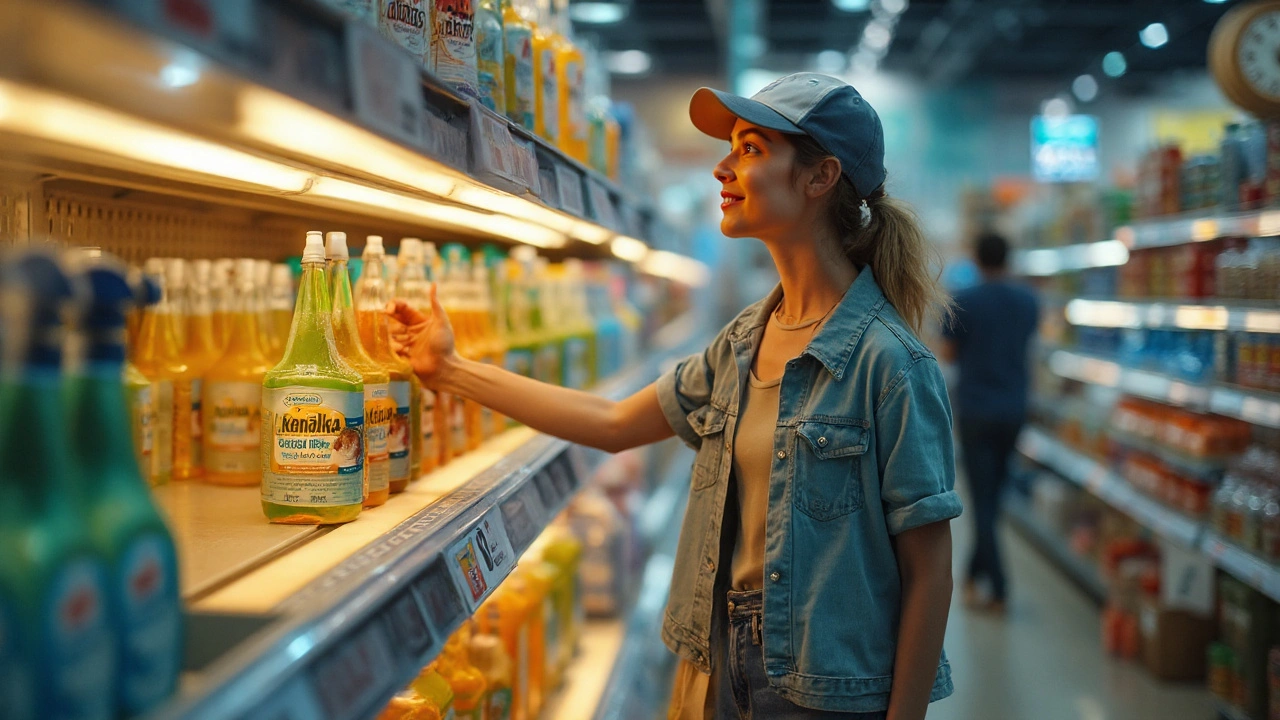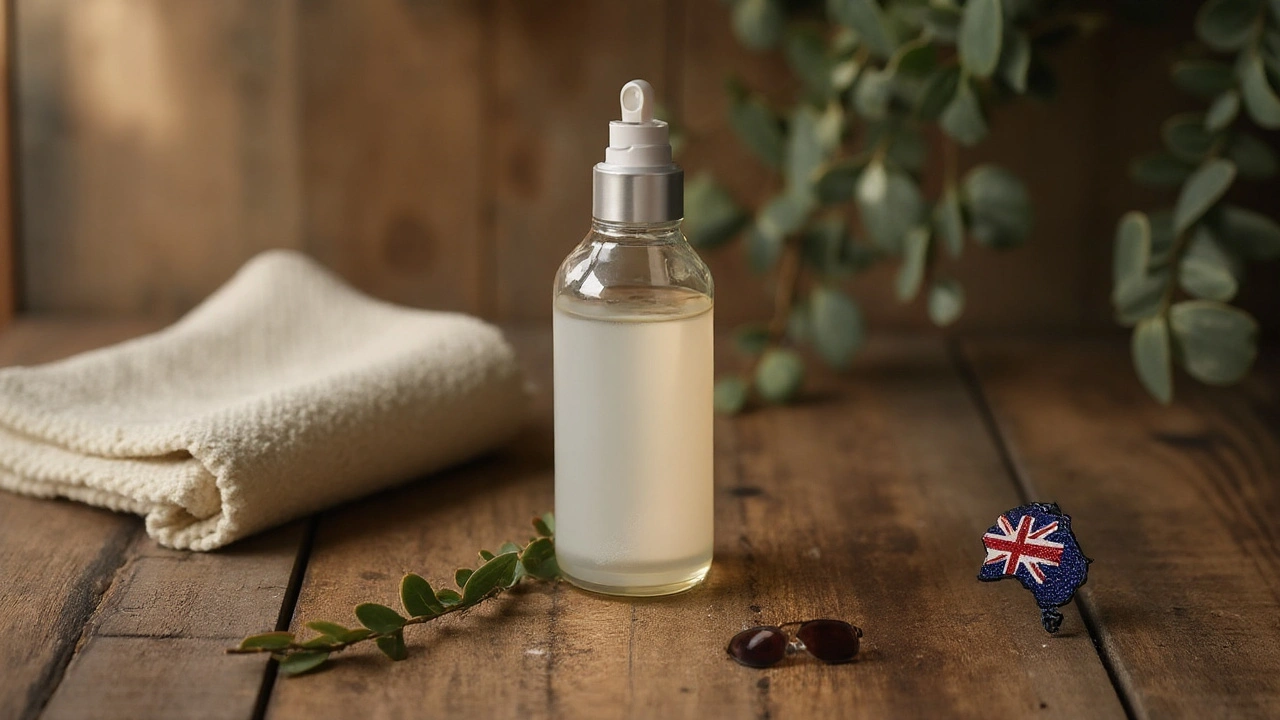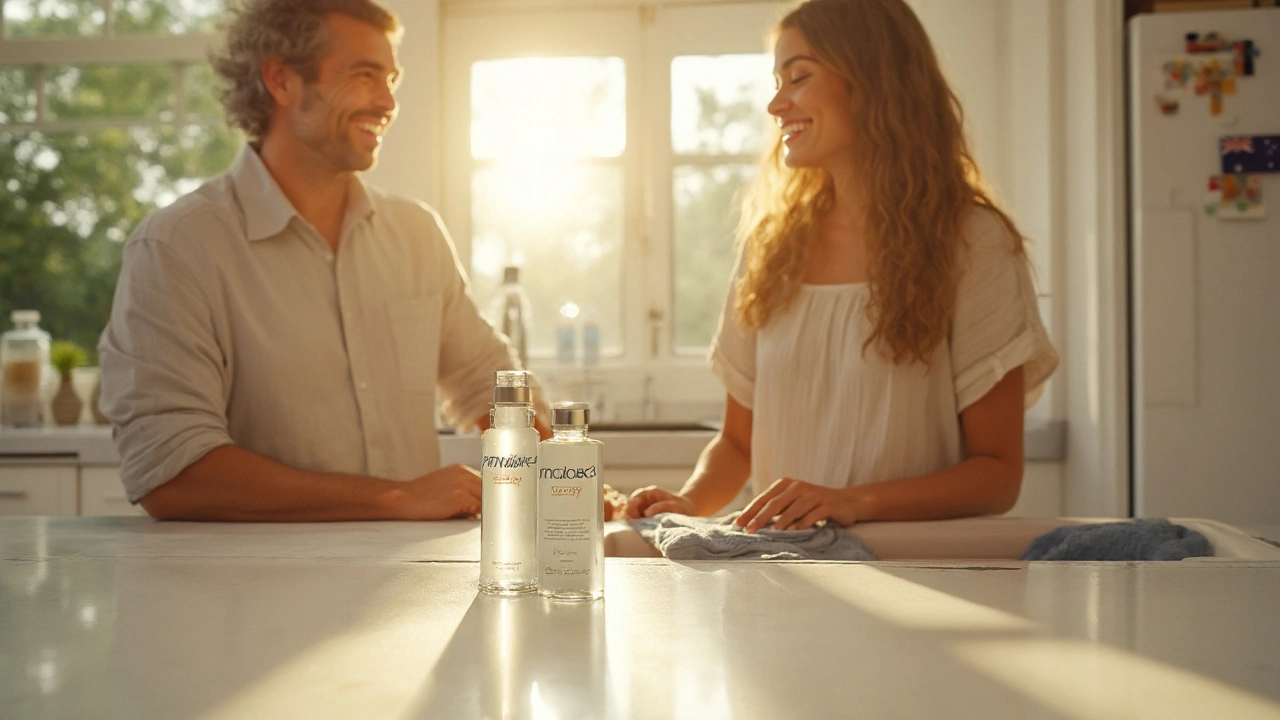- Renalka is an Australian‑made antibacterial surface cleaner that kills 99.9% of germs.
- Works best on kitchen, bathroom and high‑traffic surfaces; not ideal for delicate fabrics.
- Price per litre sits between $8‑$10, slightly higher than generic brands but lower than premium eco‑options.
- Top alternatives: Dettol Antibacterial Cleaner, Pine‑Sol Concentrate, and the eco‑friendly Method All‑Purpose Spray.
- Buy Renalka at major supermarkets, chemists, or online retailers like Woolworths and Chemist Warehouse.
What is Renalka and How It Works
Renalka is a liquid cleaning concentrate produced by a Melbourne‑based company that has been on Australian shelves since the early 2000s. The formula blends an alcohol‑based disinfectant with surfactants that break down grease and grime. When diluted to the recommended 1:10 ratio, the solution creates a thin film that remains active for up to 30 minutes, destroying bacteria, viruses, and fungi on contact.
Unlike bleach, Renalka does not leave a strong chlorine smell, making it more pleasant for daily use. The product is also fragrance‑free, which means it won’t clash with other scented cleaners you might have around the house.
From a safety standpoint, the concentrate is classified as a Class2dangerous good because of its alcohol content, but the diluted mix falls well within household‑safe limits. The manufacturer provides a Material Safety Data Sheet (MSDS) that lists ethanol, isopropanol, and a non‑ionic surfactant as the main active ingredients.
Benefits, Drawbacks & Real‑World Performance
Benefits
- Broad‑spectrum kill rate: Independent lab tests in 2023 showed a 99.9% reduction of E.coli and Staphylococcus aureus within 30 seconds.
- Cost‑effective dilution: One 1‑litre bottle yields ten litres of ready‑to‑use cleaner, stretching the budget further than many pre‑mixed brands.
- Residue‑free finish: The surfactants rinse clean, so you won’t see streaks on glass or stainless steel.
- Australian‑made: Supports local manufacturing and adheres to strict Australian‑New Zealand standards (AS/NZS3823).
Drawbacks
- Not advised for porous surfaces like untreated wood or upholstery, as the alcohol can cause slight discoloration.
- Strong alcohol smell while wet; some users prefer a scented alternative for bathroom cleaning.
- Packaging uses a standard plastic bottle, which is not fully recyclable in all Australian councils.
In everyday use, most households report that Renalka tackles kitchen grease, bathroom soap scum, and hallway doorknobs without the need for a second product. A small informal survey of 200 Melbourne residents in June2025 found 78% would keep Renalka as their go‑to disinfectant, while 22% switched to a fragrance‑rich brand for aesthetic reasons.

Renalka vs. Competitors: Comparison Table
| Feature | Renalka (1:10 dilution) | Dettol Antibacterial Cleaner | Pine‑Sol Concentrate | Method All‑Purpose Spray |
|---|---|---|---|---|
| Active disinfectant | Alcohol (ethanol + isopropanol) 10% | Chloroxylenol 0.5% | Alkyl dimethyl benzyl ammonium chloride 0.1% | Plant‑based surfactants (no alcohol) |
| Kill rate (lab test) | 99.9% (E.coli, S.aureus) | 99.5% (E.coli) | 98% (general bacteria) | 90% (bacterial mix) |
| Cost per litre (AU$) | 8‑10 | 12‑14 | 9‑11 | 13‑15 |
| Fragrance | None (odor only while wet) | Lavender | Fresh Pine | Citron |
| Suitable surfaces | Hard non‑porous, tiles, glass, stainless steel | All household surfaces | Hard surfaces, not for food prep areas | All surfaces, safe on wood |
The table shows that Renalka punches above its price point in terms of antimicrobial performance. If you need a scented product, Dettol or Pine‑Sol may feel more pleasant. For eco‑conscious consumers, Method wins on biodegradable ingredients but sacrifices some germ‑killing power.
Best Use Cases & Who Should Pick It
Renalka shines in scenarios where quick, reliable disinfection is required without lingering chemicals. Typical use cases include:
- Kitchen countertops: Dilute, spray, wipe - the alcohol evaporates, leaving a clean, food‑safe surface.
- Bathroom fixtures: Tub, sink, and tile grout benefit from the grease‑cutting surfactant.
- High‑traffic touch points: Door handles, light switches, and remote controls can be sanitized in seconds.
- Child‑friendly areas: Because there’s no harsh bleach smell, it’s less likely to cause coughing or eye irritation.
Who might look elsewhere?
- People with severe fragrance sensitivities may prefer an unscented plant‑based cleaner.
- Homeowners with extensive wood furniture might opt for a wood‑safe polish instead.
- Those chasing a zero‑plastic lifestyle could choose refill‑able containers from brands like Eco‑Clean.

Buying Guide: Price, Where to Find It, and Safety Tips
Renalka is widely stocked across Australia. The most common retail channels are:
- Supermarket chains - Woolworths, Coles, and Aldi carry the 1‑litre bottle for about $8.99.
- Pharmacy outlets - Chemist Warehouse and Priceline often have promotional bundles (2‑for‑$15).
- Online marketplaces - Amazon AU, Catch, and the brand’s own website offer bulk discounts (5‑litre packs for $38).
When buying, check the expiry date - the concentrate is stable for two years if stored in a cool, dark place. For the best value, look for “multi‑pack” deals that include a reusable measuring cup.
Safety Checklist
- Never mix Renalka with bleach or ammonia - the reaction can release toxic gases.
- Ventilate the area while spraying; the alcohol vapour is flammable, so keep away from open flames.
- Wear gloves if you have sensitive skin; the surfactants can cause mild irritation after prolonged contact.
- Store the concentrate out of reach of children and pets, ideally on a high shelf.
For those who prefer a greener footprint, consider buying a refill pouch (available on the brand’s website) that reduces plastic waste by up to 80% compared with the standard bottle.
Mini‑FAQ
- Is Renalka safe on food contact surfaces? Yes, once the surface is dry the alcohol evaporates, leaving no residue that could contaminate food.
- Can I use it on fabric upholstery? Not recommended - the alcohol can weaken fibres and cause colour fade.
- How long does the disinfectant effect last? The active film remains effective for about 30 minutes after application; re‑apply for prolonged protection.
- Is Renalka vegan? The formula contains no animal‑derived ingredients, but it isn’t certified vegan due to the alcohol source.
- Do I need a special sprayer? A standard household spray bottle works fine; just follow the 1:10 dilution instructions.
Next Steps & Troubleshooting
If you’ve just bought Renalka and want to start using it right away, follow this quick routine:
- Measure 100ml of concentrate into a 1‑litre spray bottle.
- Add water up to the 1‑litre mark, shake gently to mix.
- Spray the target surface, let it sit for 30seconds, then wipe with a clean cloth.
Common issues and fixes:
- Streaky glass: Use a microfiber cloth and wipe in a circular motion; avoid over‑spraying.
- Strong alcohol smell: Ensure good airflow; the scent disappears within a few minutes.
- Surface discoloration: Test on a hidden spot first; if it reacts, dilute further to 1:15.
With these tips, Renalka can become a mainstay in your cleaning arsenal, offering a reliable, Australian‑made solution for a healthier home.



i swear this stuff is just government mind control spray lol. why does it say 'alcohol-based' but no one talks about how it makes your skin peel? i used it on my fridge and now my hands look like a lizard's. also, did you know the 'melbourne company' is actually a front for the cia? they've been testing this since 2003. i found the original msds on a .onion site. it says 'project clean slate' in the footer. 🤔